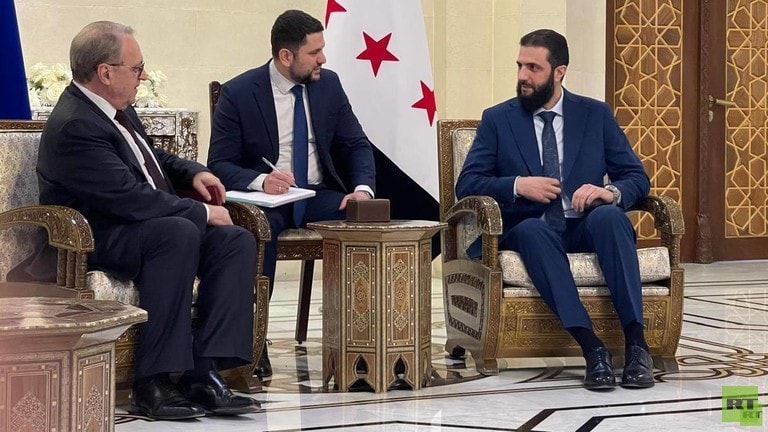Russian delegation visits Syria
The recent change of power in Damascus "will not change the nature" of Russia-Syria relations, Deputy Foreign Minister Mikhail Bogdanov asserted.

After Russia's first diplomatic visit to Syria since the country's leadership change, Russian Deputy Foreign Minister Mikhail Bogdanov said that Moscow and Damascus intend to maintain their long-standing stable and mutually beneficial relationship.
Deputy Minister Bogdanov led the Russian delegation to talks with the head of the Syrian government, Ahmed Hussein al-Sharaa, on January 28. The meeting was also attended by Syrian Foreign Minister Asaad al-Shaibani, Health Minister Maher al-Sharaa, and representatives of several Russian government agencies.
Mr al-Sharaa, known by his alias Abu Mohammad al-Julani, became Syria's de facto leader last month after his jihadist group Hayat Tahrir al-Sham (HTS) launched a surprise attack on Damascus, forcing former President Bashar Assad to flee the country.
Speaking to RT Arabic on January 28 after the talks, Deputy Minister Bogdanov stressed that the recent change of power in Damascus “will not change the nature” of Russia-Syria relations. “We confirm the fundamental invariance of our relations, which are strategic and aimed at protecting the unity and independence of the Syrian Arab Republic,” he said.
According to Bogdanov, the discussions also covered the continued maintenance of Russia's military presence in Syria, although no specific agreements have been reached yet.
"As far as we know, the status of the Russian facilities in Tartus and Khmeimim has not changed, and the two sides have reached an agreement to continue in-depth dialogue on many aspects of cooperation between the two countries," he said.
Moscow is ready to help stabilize Syria and resolve its economic and social challenges, Bogdanov added, noting that the new government in Damascus has expressed "understanding and interest" in Russia's position.
The talks also covered trade and economic ties, as well as Moscow's continued participation in Russian-Soviet infrastructure projects in Syria, including power plants and hydroelectric dams, he said.
Last month, al-Sharaa told Al Arabiya News that Damascus and Moscow have “common strategic interests”. “We do not want Russia to leave Syria in a way that weakens the relationship between the two countries,” he stressed.


